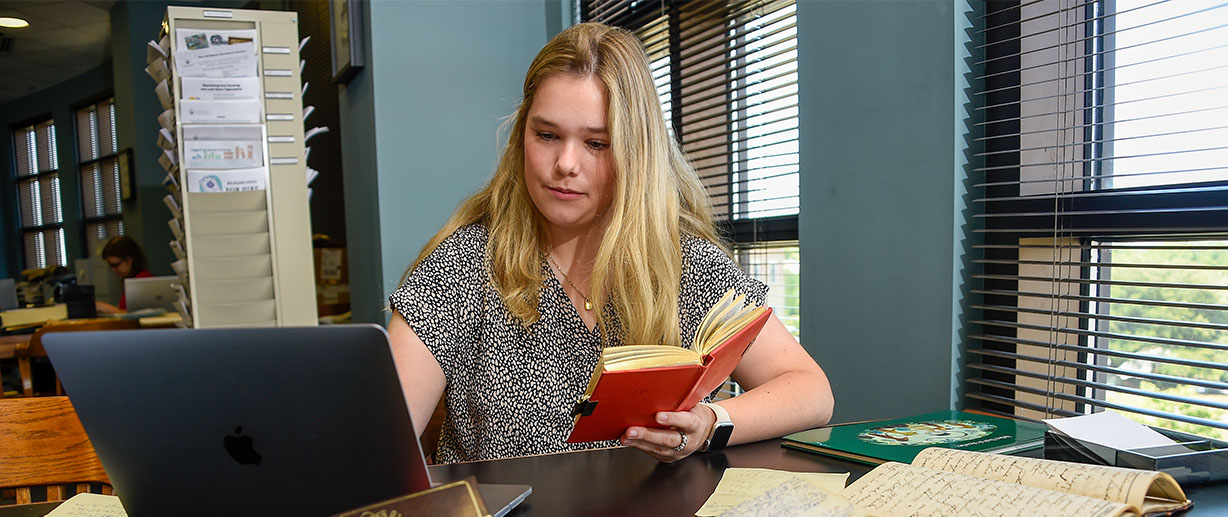
But she rarely wrote about her art.
That’s one of the things Lizzie Richards (Wofford Class of 2023) learned over the summer while researching the life of Moseley, an artist known for her paintings of surreal figures. As part of her project, Richards, a history and art history major from Columbia, South Carolina, is now selecting some of Moseley’s works for an exhibit scheduled to open in February 2023.
Richards’ research is supported by funding provided by the SCICU Student/Faculty Research Program. She will present her project findings at the SCICU Student Research Symposium on February 16, 2023. Milliken & Company’s headquarters in Spartanburg will host the symposium.
“Art was only a hobby for her,” says Richards. “When I look at her artwork, it’s so childlike in a way. It’s so creative, and it’s work that should be seen.”
Moseley’s father was a member of the Wofford College faculty, and she grew up on the campus. She took over her husband’s insurance business after his death in 1927. In 1934, she was named Spartanburg’s first female postmaster by President Franklin D. Roosevelt. She died in 1984 at age 96.
Dr. Karen Goodchild, Chapman Family Professor of Humanities and Interim coordinator, is Richards’ faculty collaborator and mentor on the project. Goodchild says it was important to learn the ins and outs of archival research.
Goodchild was honored in 2021 as the SCICU Excellence In Teaching award recipient for Wofford College.
“She is working on an artist about whom a number of scholars have said the same things repeatedly, but Lizzie felt there was more to her story,” Goodchild says. “Lizzie is finding what that more is by poring over diaries, newspaper articles, records of the Spartanburg Artists’ Guild and others. But she also is finding out that you can’t guarantee what you will discover with historical research, and you have to be agile in your thinking in order to keep following your subject.”
Richards became acquainted with Moseley a year ago, when she participated in a project to catalog and restore works in Wofford’s permanent collection. That’s when she began contemplating an exhibit of Moseley’s work.
“Her last child (Cynthia Elizabeth Moseley) died this past fall,” Richards says. “Helen’s family line is done. I’m grateful to be able to bring her back to light in Spartanburg. Her works command a room of their own.”
Goodchild says Richards’ exhibit will reveal new facets of Moseley’s career.
“She will show how and why Moseley stepped — and drew — outside the lines of the ordinary,” Goodchild says. “Understanding this, viewers may also understand Spartanburg a bit better. I hope visitors will develop a greater appreciation of the medium in which Moseley was a true master: brush drawing. Many know Moseley as a painter in oils, but our curator (Dr. Youmi Efurd) had the insight to collect and preserve a great number of Moseley’s brush drawings in ink, works that decades later astound us with their quirky, confident, freshness.”
